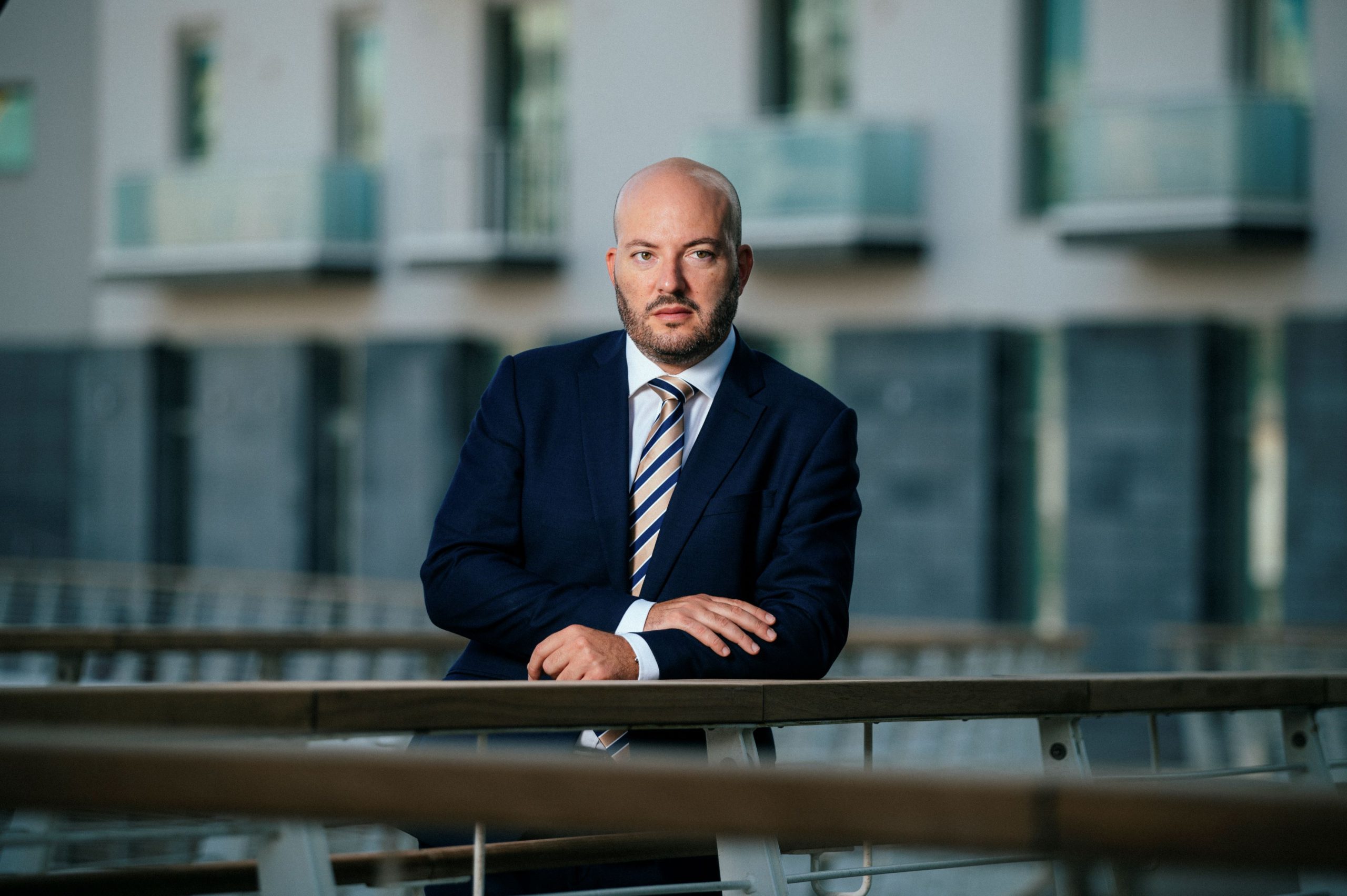Family businesses are the backbone of Malta’s (pandemic-aside) thriving business community. Coming in all shapes and sizes, from major manufacturing operations, like Farsons, to your neighbourhood retailer, they make up around 75 per cent of Malta’s SMEs – defined by the European Commission as any organisation with fewer than 250 employees.
Appreciating the importance of family businesses to Malta, Family Business Office (FBO) Regulator Joseph Gerada and his admittedly small team have recently launched a revamped initiative aimed at incentivising families to sit down around a table and form a plan as to how their business will be passed on from one generation to the next.
“We want to encourage families and family businesses to start preparing for a succession plan, leading to the transfer of the business to the next generation,” says Dr Gerada.
What does the scheme involve?
In a nutshell, it is divided into two segments: subsidisation on the cost of advisory/consultancy services and subsidisation on the cost of mediation services, helping families to resolve disputes and receive professional advice over the course of succession planning.
“The incentive itself will cover up to 50 per cent of invoices up to a maximum of €2,000 per invoice. However, the scheme offers a maximum of €15,000 over three years, so a family business can have a consultancy programme or plan spread over this length of time.”
The regulator did not stop there, however. In addition to the consultancy aspect of the incentive, the FBO made it possible so that the €15,000 aid can be used for a combination of mediation services and advisory services.
Here, Dr Gerada acknowledges that no two family businesses and families are the same, and while some may need to rely a little more heavily on mediation services, others may not.
Talking about the process of succession planning more broadly, Dr Gerada says that from experience, the FBO is hyper-aware that this takes time, a lot of energy and determination.
“For some family businesses, the initial phase involves managing to gather them around a table to start discussing the possibility of how they are going to pass on the business and that takes time. Obviously, this would just be phase one.”
How is this scheme different from the advisory and dispute resolution incentives previously offered by Government?
Funding for advisory services or dispute resolution for businesses is not a new concept locally. Other schemes falling under other Government agencies, which subsidised costs of advisory, provided businesses with a list of approved consultants who can be approached.
“In our case, we thought about doing that, but we realised you can have situations within family businesses that are quite delicate, and the family will not be likely to trust just any professional to advise them.
“For this reason, we left the choice of the professional open to the family business – as long as it is a warranted professional the family trusts, we will accept the application”, explains Dr Gerada.
The new incentive aims at ensuring that the advisory or mediation services received effectively address the succession planning needs of the family business.
“So, under this new system, we require more information at application stage as well as a follow-up report into what has been achieved when the business makes the claim for assistance. This ensures better control over the type of services being offered under the scheme. All this for the ultimate benefit of the family business itself.”
As to the mediation side, which can be a significant component in certain cases, such as when families are not even agreeing as to the value of the shares they are holding, the FBO previously offered a form of aid for dispute resolution, however, this was not popular for a number of reasons.
Previously, the FBO offered assistance for arbitration, a more formal type of dispute resolution. Upon reviewing the schemes that worked versus those that were less popular, it was found that many family businesses were sceptical of this process for various reasons.
“We realised having something less formal, keeping it as open as possible, is the best way to go.”
He painted a picture where a family running a business can approach the FBO to inform them they do not wish to use formal proceedings for dispute resolution but would rather have their accountant, for example, a professional who would have been engaged with the family for several years, if not decades, to resolve certain disputes.
Indeed, Malta’s small size and comparatively limited pool of professionals means that many family businesses prefer to engage their own trusted professional who they know will understand the particular intricacies of a specific family dynamic after years of cultivating a professional relationship.
“We would accept that this ‘trusted accountant’ or some other professional service provider to act as a mediator in instances like these.
“It could be an informal contact like that, and, in parallel to this, we have started discussions with the mediation centre on the possibility of setting up a unit within the organisation specialising in resolving disputes related specifically to business and family businesses in general.”
Currently, very few mediators locally specialise in such areas.
Going a step further, the FBO is also in talks with the mediation centre about exploring the possibility of cooperating on launching initiatives that would act as a motivator to interested mediators to further develop their expertise in the area of mediation for business and for family business disputes.
“In this way, we would have a pool of three to five mediators with the centre who would be able to assist.”
Why are schemes incentivising planning for the transfer of business to the next generation important?
It is widely accepted that family businesses run into particular challenges, especially when reaching third and fourth generation members.
Dr Gerada identifies the numerous reasons behind this, with siblings having different numbers of children, some interested in joining, others wanting to stay firmly away. When children who grow into adults do want to join the family business, they are sometimes welcomed by staff, but at other times, challenges are raised about the new generation’s authority within the organisation.
Despite the many reasons as to why succession planning can get complicated, Dr Gerada is steadfast in his belief that without the onboarding of the new generation and ‘new blood’, so to speak, businesses tend to stagnate. It is no secret that throughout a business’ lifespan, without diversification and growth, the organisation is more than likely to fail.
This is where long-term planning comes in, so that family businesses can prepare years in advance as to which direction the business is going to be taken.
How can you get families running businesses to make such long-term plans when many are fighting for survival due to the pandemic?
The pandemic has wreaked havoc in all aspects of life, not least of which business. Dr Gerada, while noting the particular difficulties being faced by family businesses, firmly believes that there has been a silver lining.
“At the start of the year we noticed we were getting more queries for our schemes directly from family businesses, rather than their service providers (accountants, lawyers, etc).
“We have deduced that since many businesses were forced to close or take a step back due to pandemic restrictions, this resulted in business owners having more time to sit, think and research to see what kind of aid and assistance is out there.”
He said that COVID aside, the biggest challenge has always been to get families running a business to pause from their day-to-day operations, which they are so focused on, to think about what is going to happen in the future and who will run the company years down the line.
Here, he said, COVID has also served to provide an important lesson. From discussions with family businesses, he found that many do not want to end up in a situation again where they have the rug pulled from under their feet and want to be prepared for all situations that may arise, beyond changes brought about by COVID.
Featured Image:
Family Business Office Regulator Joe Gerada / Photo by Daryl Cauchi
Gozo business groups avoid direct comment on Portelli’s approved Xlendi ‘tower’
The development was approved yesterday
Cloudflare suffers second major outage in a month, knocking global platforms offline
The outage comes amid scheduled maintenance at Cloudflare’s Detroit data centre
New advisory group formed to address migrant labour challenges in Malta’s ride-hailing and delivery sectors
'Effective migration governance requires collective action'






